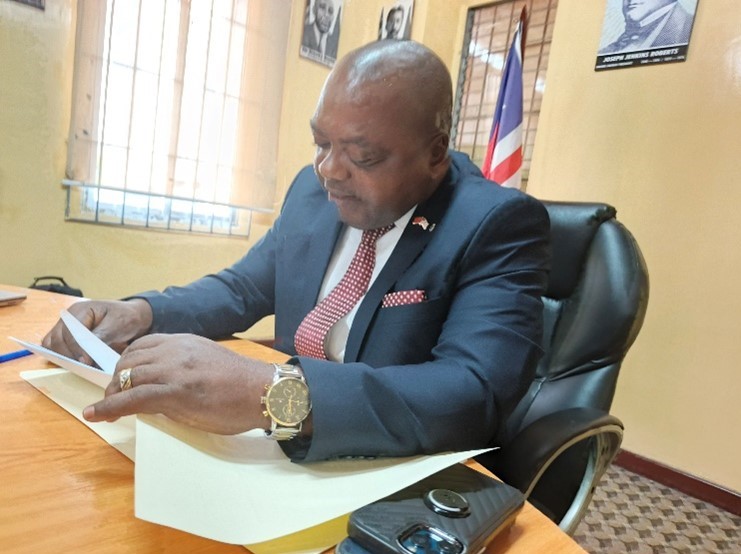The Liberian judiciary is embroiled in a deepening conflict, marked by escalating tensions between the Liberian National Bar Association (LNBA) and the Supreme Court. The discord stems from the Bar Association’s public critique of the Supreme Court’s ruling on the House of Representatives’ leadership dispute. This criticism prompted retaliatory action from the Court, manifested in a boycott of the Bar Association’s Law Day celebration. The absence of the entire Supreme Court bench, including Chief Justice Sie-A-Nyene G. Yuoh, from the event, traditionally a gathering for all members of the legal profession, underscored the gravity of the rift. This public display of disapproval, witnessed by international partners, highlights the growing divide within Liberia’s legal system.
The leadership crisis within the House of Representatives lies at the heart of this escalating tension. The Executive branch, aligned with a faction of lawmakers self-proclaimed as the “Majority Bloc,” orchestrated the removal of Speaker J. Fonati Koffa, replacing him with Richard Nagbe Koon. The Supreme Court, however, deemed this removal illegal and upheld Koffa’s legitimacy as Speaker. This ruling, rather than being respected and enforced, has become a point of contention, with President Joseph Boakai declaring it unenforceable. This defiance of the Supreme Court’s authority by the Executive branch has exacerbated the existing tensions within the judiciary and exposed the fragility of the rule of law in Liberia.
The Law Day celebration, intended as a forum for unity within the legal profession, instead became a stage for further division. Former Chief Justice, Cllr. Gloria Musu Scott, stepping in to deliver the keynote address, strongly rebuked the LNBA President’s public condemnation of the Supreme Court. Her address underscored the importance of respecting the Court’s decisions, emphasizing the finality of its pronouncements. Cllr. Scott cautioned against politicizing legal institutions and warned the Bar Association against veering into political territory under the guise of legal advocacy. Her words, though aimed at de-escalation, also highlighted the perceived transgression by the Bar in publicly challenging the Supreme Court’s authority.
The current situation paints a concerning picture of a judiciary grappling with external political pressures and internal divisions. The Executive branch’s blatant disregard for the Supreme Court’s ruling undermines the Court’s authority and sets a dangerous precedent. Simultaneously, the public disagreement between the Bar Association and the Supreme Court further erodes public trust in the legal system’s ability to function independently and impartially. This conflict is not simply a disagreement between two legal bodies; it represents a larger struggle for the balance of power and the upholding of the rule of law in Liberia.
The politicization of the judiciary is a recurring theme in this ongoing saga. The Executive branch’s actions appear motivated by a desire to exert influence over legal processes, prioritizing political expediency over adherence to the rule of law. This maneuvering jeopardizes the independence of the judiciary and its ability to serve as a check on executive power. The Bar Association, while advocating for adherence to legal principles, risks being perceived as taking sides in a political dispute, thereby further complicating the situation. This intricate web of political maneuvering and judicial pronouncements underscores the urgent need for a de-escalation of tensions and a reaffirmation of the principles of judicial independence and respect for the rule of law.
Moving forward, it is crucial for both the Bar Association and the Supreme Court to prioritize the integrity of the legal profession and the Constitution over individual grievances. Engaging in a tit-for-tat exchange will only serve the interests of those seeking to undermine the rule of law. Both institutions should strive to uphold the sanctity of the legal system, even amidst political pressure. A path towards reconciliation requires open communication, mutual respect, and a shared commitment to upholding the principles of justice and the rule of law. Ultimately, history will judge which side truly championed these principles during this critical juncture in Liberia’s legal and political landscape.














